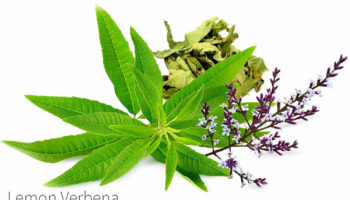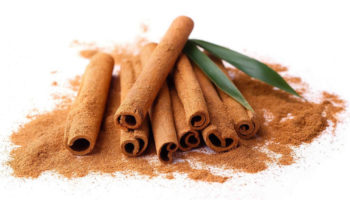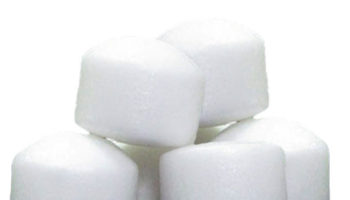
Contents
- What is St. John’s Wort
- St. John’s Wort Uses
- Depression
- St. John’s Wort as Treatment for Depression
- St. John’s Wort as Treatment for Somatoform disorders
- St. John’s Wort as Treatment for Weight Loss
- St. John’s Wort as Treatment for Attention Deficit Hyperactivity Disorder (ADHD)
- What Do We Know About Its Safety ?
- St. John’s Wort Side Effects
- St Johns Wort Dosage 25
What is St. John’s Wort
St. John’s wort (Hypericum perforatum) is a plant with yellow flowers that grows in the wild, whose medicinal uses were first recorded in ancient Greece 1. The flowering tops of St. John’s wort are used to prepare teas, tablets, and capsules containing concentrated extracts. Liquid extracts and topical preparations are also used.
However, consumers need to be aware of serious concerns about its safety and effectiveness. St. John’s wort interacts with many medications, making the medications less effective. St. John’s wort may cause serious interactions with prescription drugs, herbs, or supplements. Therefore, people using any medications should consult their healthcare providers, including a pharmacist, prior to starting therapy 2.
Historically, St. John’s wort has been used for a variety of conditions, including depression, kidney and lung ailments, insomnia, and depression, and to aid wound healing.
Currently, St. John’s wort is most often used as a dietary supplement for depression 3, 4. In the United States, the Food and Drug Administration (FDA) has not approved its use as an over-the-counter or prescription medicine for depression.
People also use it as a dietary supplement for other conditions, including menopausal symptoms, attention-deficit hyperactivity disorder (ADHD), and obsessive-compulsive disorder. It is used topically for wound healing.
The most common modern-day use of St. John’s wort is for depression. Studies have shown St. John’s wort may be equally effective as tricyclic antidepressants (TCAs) and selective serotonin reuptake inhibitor (SSRI) antidepressants for mild to moderate depression 4. However, the results of studies on the effectiveness of St. John’s wort for depression are mixed 5.
There has been extensive research on St. John’s wort, especially on its use for depression and on its interactions with medications. Conditions such as ADHD, irritable bowel syndrome, and quitting smoking, current evidence indicates that St. John’s wort is not helpful. For others, such as menopausal symptoms, premenstrual syndrome, and obsessive-compulsive disorder, the evidence is inconclusive.
It has been clearly shown that St. John’s wort can interact in dangerous, sometimes life-threatening ways with a variety of medicines.
St. John’s Wort Uses
- It is important to note that in the United States, the Food and Drug Administration has not approved its use as an over-the-counter or prescription medicine for depression.
- St. John’s wort is not a proven therapy for depression. Do not use St. John’s wort to replace conventional care or to postpone seeing your health care provider. Inadequately treated depression may become severe and, in some cases, may be associated with suicide. Consult a health care provider if you or someone you know may be depressed.
- St. John’s wort may help some types of depression, similar to treatment with standard prescription antidepressants, but the evidence is not definitive.
- Combining St. John’s wort with certain antidepressants can lead to a potentially life-threatening increase of serotonin, a brain chemical targeted by antidepressants.
- St. John’s wort can also limit the effectiveness of many prescription medicines.
- Psychosis is a rare but possible side effect of taking St. John’s wort.
- Tell all your health care providers about any complementary health approaches you use. Give them a full picture of what you do to manage your health. This will help ensure coordinated and safe care.
Depression
Depression is a medical condition that affects about 1 in 10 U.S. adults. Mood, thoughts, physical health, and behavior all may be affected. The symptoms and severity of depression can vary from person to person. Depression can be treated with conventional medicine, including antidepressants and certain types of psychotherapy 6.
Current research suggests that depression is caused by a combination of genetic, biological, environmental, and psychological factors 7.
Depression can happen at any age, but often begins in adulthood. Depression is now recognized as occurring in children and adolescents, although it sometimes presents with more prominent irritability than low mood. Many chronic mood and anxiety disorders in adults begin as high levels of anxiety in children.
Depression, especially in midlife or older adults, can co-occur with other serious medical illnesses, such as diabetes, cancer, heart disease, and Parkinson’s disease. These conditions are often worse when depression is present. Sometimes medications taken for these physical illnesses may cause side effects that contribute to depression. A doctor experienced in treating these complicated illnesses can help work out the best treatment strategy.
Risk factors include:
- Personal or family history of depression
- Major life changes, trauma, or stress
- Certain physical illnesses and medications
Treatment: Things You Can Do
Depression, even the most severe cases, can be treated. The earlier that treatment can begin, the more effective it is. Here are other tips that may help you or a loved one during treatment for depression:
- Try to be active and exercise.
- Set realistic goals for yourself.
- Try to spend time with other people and confide in a trusted friend or relative.
- Try not to isolate yourself, and let others help you.
- Expect your mood to improve gradually, not immediately.
- Postpone important decisions, such as getting married or divorced, or changing jobs until you feel better. Discuss decisions with others who know you well and have a more objective view of your situation.
- Continue to educate yourself about depression.
Treatment: Medications and Psychotherapy
Depression is usually treated with medications, psychotherapy, or a combination of the two. If these treatments do not reduce symptoms, electroconvulsive therapy (ECT) and other brain stimulation therapies may be options to explore.
- Antidepressants are medicines that treat depression. They may help improve the way your brain uses certain chemicals that control mood or stress. You may need to try several different antidepressant medicines before finding the one that improves your symptoms and has manageable side effects.
- Several types of psychotherapy (also called “talk therapy” or, in a less specific form, counseling) can help people with depression. Examples of evidence-based approaches specific to the treatment of depression include cognitive-behavioral therapy (CBT), interpersonal therapy (IPT), and problem-solving therapy.
- Brain Stimulation Therapies: If medications do not reduce the symptoms of depression, electroconvulsive therapy (ECT) may be an option to explore. Other more recently introduced types of brain stimulation therapies used to treat medicine-resistant depression include repetitive transcranial magnetic stimulation (rTMS) and vagus nerve stimulation (VNS).
St. John’s Wort as Treatment for Depression
St. John’s wort is not a proven therapy for depression. Do not use St. John’s wort to replace conventional care or to postpone seeing your health care provider. Inadequately treated depression may become severe and, in some cases, may be associated with suicide. Consult a health care provider if you or someone you know may be depressed.
In the United States, the Food and Drug Administration (FDA) has not approved its use as an over-the-counter or prescription medicine for depression.
- St. John’s wort is not a proven therapy for depression. Do not use St. John’s wort to replace conventional care or to postpone seeing your health care provider 6.
- Inadequately treated depression may become severe and, in some cases, may be associated with suicide. Consult a health care provider if you or someone you know may be depressed 6.
Combining St. John’s wort with certain antidepressants can lead to a potentially life-threatening increase of serotonin, a brain chemical targeted by antidepressants. St. John’s wort can also limit the effectiveness of many prescription medicines.
The trial (analysis of results was completed in 2001) funded by the National Institute of Health, National Center for Complementary and Integrative Health 8 involving 340 men and women ages 18 and older with depression with average age of participants entering the study was approximately 42 years, took place from December 1998 to June 2000. The starting dose of St. John’s wort was 900 mg per day (given in 300 mg tablets, three times a day). That dose could be increased up to 1,500 mg per day in the first 6 weeks of the study until the end of the first phase of the trial at 8 weeks. During the second phase of the trial, after 8 weeks, the dose could be increased to 1,800 mg per day. The average dose of St. John’s wort in the initial 8 weeks of the study was about 1,300 mg per day.
The study 8 found no statistically significant difference between St. John’s wort and placebo on improvement in the Hamilton Depression Scale (HAM-D) scores or percentage of complete responses. The percentage of participants in remission from major depression at the end of the 8-week initial treatment phase was approximately 24 percent for St. John’s wort and about 32 percent for placebo. Overall, the percentage of participants who improved either partially or completely was about 38 percent for St. John’s wort and 43 percent for placebo. These findings suggest that St. John’s wort is not effective for the treatment of major depression in adults with a moderate level of symptoms. This conclusion is supported by another recently reported placebo-controlled study 9.
The study also found no significant difference between sertraline and placebo on either primary outcome, with about 25 percent of the participants on sertraline reaching remission as compared to about 32 percent on placebo. The rate of response overall was about 49 percent for sertraline and 43 percent for placebo, but this difference was not statistically significant. At the same time, additional planned analyses of the data did show that sertraline was superior to placebo on other secondary tests of efficacy, such as the CGI-I alone. The results of the sertraline versus placebo comparison indicate that the sensitivity of this study to antidepressant effects was limited. In other words, even two treatments (sertraline and placebo) previously proven to differ in efficacy for major depression were found not to differ on the primary measures used in this study.
St. John’s wort was generally well tolerated. However, people who were taking the extract did experience more sexual dysfunction, general swelling, and urinary frequency than those taking placebo. Side effects for those taking sertraline included sexual dysfunction, sweating, nausea, and diarrhea.
A 2009 systematic review of 29 international studies in 5489 patients with depression 10, 11 that compared treatment with extracts of St. John’s wort for 4 to 12 weeks with placebo (an inactive substance that appears identical to the study substance) treatment or standard antidepressants. The studies came from a variety of countries, tested several different St. John’s wort extracts, and mostly included patients suffering from mild to moderately severe symptoms. Overall, the St. John’s wort extracts tested in the trials were superior to placebo, similarly effective as standard antidepressants, and had fewer side effects than standard antidepressants. However, findings were more favourable to St. John’s wort extracts in studies from German-speaking countries where these products have a long tradition and are often prescribed by physicians, while in studies from other countries including the United States, St. John’s wort extracts seemed less effective.
Two studies 12, 13, both sponsored by NCCIH and the National Institute of Mental Health, did not have positive results. Neither St. John’s wort nor a standard antidepressant medication decreased symptoms of minor depression better than a placebo in a 2011 study 14. The herb was no more effective than placebo in treating major depression of moderate severity in a large 2002 study.
Preliminary studies 15, 16 suggest that St. John’s wort may prevent nerve cells in the brain from reabsorbing certain chemical messengers, including dopamine and serotonin. Scientists have found that these naturally occurring chemicals are involved in regulating mood, but they are unsure exactly how they work.
St. John’s Wort as Treatment for Somatoform disorders
Somatoform disorders are mental symptoms such as pain and fear that lack a physical source or reason for their existence. Early evidence shows that St. John’s wort may help with somatoform disorders. Further research is needed to confirm these results 4.
St. John’s Wort as Treatment for Weight Loss
Early research shows that a combination product containing St. John’s wort was effective for weight loss. Further research of St. John’s wort alone is needed before a conclusion may be drawn 17.
St. John’s Wort as Treatment for Attention Deficit Hyperactivity Disorder (ADHD)
According to the National Institute of Mental Health at NIH, Attention Deficit Hyperactivity Disorder (ADHD) affects 3 to 5 percent of children in the United States and it is one of the most common mental disorders that develop in children 18. NIMH states that children with ADHD have impaired functioning in multiple settings, including home, school, and in relationships with peers. Children with chronic conditions like ADHD are reported to have higher rates of complementary and alternative medicine use and may turn to dietary and herbal supplements such as St. John’s wort. However, according to authors of a new NCCAM-funded study 19, St. John’s wort does not appear to have an impact on the symptoms of ADHD in children and adolescents. Another study 20 also showed no evidence to support its use in these patients and their use is discouraged because of the potential adverse effects these products could cause. A review 21 of available evidence regarding the use of complementary/alternative medicine like St. John’s Wort in adolescents with the attention deficit hyperactivity syndrome (ADHD) and mood disorders, does not show any favorable results beyond placebo.
Researchers at Bastyr University conducted an 8-week randomized, placebo-controlled, double-blind trial of St. John’s wort among a volunteer sample of 54 children aged 6 to17 years with ADHD. Participants were randomly assigned to receive 300 mg of Hypericum perforatum (St. John’s wort) standardized to 0.3 percent hypericin—an active ingredient in St. John’s wort—or placebo 3 times daily for 8 weeks. The participants were evaluated for changes in inattentiveness and hyperactivity from baseline at weeks 1, 2, 4, 6, and 8.
While symptom improvement was noted in both the treatment and the placebo groups, the data suggest that St. John’s wort had no additional benefit beyond that of placebo for treating symptoms of ADHD.
This study used a preparation of St. John’s wort with a standardized hypericin content. However the researchers note that studies involving St. John’s wort also standardized to hyperforin—another active ingredient in St. John’s wort—could be beneficial. Hyperforin is believed to inhibit reuptake of key brain chemicals—serotonin, dopamine, and norepinephrine. The authors note that hyperforin is highly unstable and can become inactive quickly. The researchers believe that if a St. John’s wort product with a higher and more stable hyperforin content became available, it would be worthy of further investigation in ADHD.
What Do We Know About Its Safety ?
- St. John’s wort can weaken the effects of many medicines, including crucially important medicines such as Antidepressants, Birth control pills, Cyclosporine, which prevents the body from rejecting transplanted organs, Digoxin, a heart medication, Some HIV drugs including indinavir, Some cancer medications including irinotecan, Warfarin, an anticoagulant (blood thinner)
- Serotonin is a brain chemical targeted by antidepressants. Combining St. John’s wort and certain antidepressants can lead to a potentially life-threatening increase in serotonin levels—a condition called serotonin syndrome. Symptoms range from tremor and diarrhea to very dangerous confusion, muscle stiffness, drop in body temperature, and even death 22.
- Psychosis is a rare but possible side effect of taking St. John’s wort, particularly in people who have or are at risk for mental health disorders, including bipolar disorder 22.
- St. John’s wort may cause increased sensitivity to sunlight. Other side effects can include anxiety, dry mouth, dizziness, gastrointestinal symptoms, fatigue, headache, or sexual dysfunction.
St. John’s Wort Side Effects
The most common side effects of St. John’s wort include dry mouth, dizziness, gastrointestinal symptoms, increased sensitivity to sunlight, and fatigue 8. Research from the National Institutes of Health (NIH) reveals that St. John’s wort may reduce the effectiveness of several drugs by speeding up activity in a key pathway responsible for their breakdown. The end result is that blood levels of these drugs decrease because the body breaks them down faster making the drugs less effective. St. John’s wort especially affects indinavir, a protease inhibitor used to treat HIV infection. It may also affect cyclosporine, a drug used to help prevent organ transplant rejection, and other drugs that work through this same pathway in the body, such as birth control pills and medications for heart disease and depression. The U.S. Food and Drug Administration (FDA) 23 issued a Public Health Advisory on February 10, 2000, warning physicians of these potential adverse interactions and advising them to alert their patients.
- St. John’s wort may cause anxiety, headache, muscle cramps, sweating, weakness, dry mouth, or skin irritation 24.
- Use with caution when using St. John’s wort with drugs metabolized by cytochrome P450, as decreased drug effectiveness may occur.
- St. John’s wort may increase the risk of photosensitivity. Use cautiously in people with sensitive skin or those taking photosensitizing drugs.
- St. John’s wort may increase the risk of serotonin syndrome. Use cautiously in people taking agents that increase the risk of serotonin syndrome.St. John’s wort may result in altered menstrual flow, bleeding, unwanted pregnancies, and hormone level changes. Use cautiously in women taking contraceptives or other estrogen agents by mouth.
- St. John’s wort may alter drug levels. Use cautiously in people taking agents for bacterial or fungal infections, agents for erectile dysfunction, antianxiety agents, antihistamines, fertility agents, P-glycoprotein agents, pain relievers, or theophylline.
- St. John’s wort may cause mania or psychosis. Use cautiously in people with mental illnesses and those taking antipsychotics.
- St. John’s wort may change how sugar is processed in the body. Use cautiously in people with diabetes or in those taking anti-diabetic agents.
- St. John’s wort may cause high levels of thyroid-stimulating hormone (TSH). Use cautiously in people with thyroid disorders or those using thyroid hormones.
- Use cautiously in people with cataracts, due to the potential association between an element St. John’s wort and cataracts.
- St. John’s wort may cause heart burn, loss of appetite, diarrhea, nausea, vomiting, and constipation. Use cautiously in people with stomach and intestine problems.
- St. John’s wort may cause liver damage. Use cautiously in people with liver problems or those taking agents that damage the liver.
- St. John’s wort may alter blood pressure and cause increased or uneven heart rate. Use cautiously in people with high blood pressure or abnormal heart rhythms.
- St. John’s wort may cause swelling. Use caution in people prone to swelling.
- St. John’s wort may cause dizziness, tiredness, insomnia, problems with the nervous system, skin tingling or prickling, and nerve pain. Use cautiously in people taking agents that affect the nervous system.
- St. John’s wort may lower the seizure threshold. Use cautiously in individuals with seizures, and drugs that may lower the seizure threshold.
- St. John’s wort may lower cholesterol drug concentration and may increase cholesterol. Use cautiously in people with high cholesterol and those taking agents to lower levels of cholesterol.
- St. John’s wort may stimulate release of certain hormones. Use cautiously with hormonal agents.
- Avoid in people with a known allergy or sensitivity to St. John’s wort or to any of its parts.
- St. John’s wort has decreased levels of drugs for HIV/AIDs. Avoid in people with HIV/AIDS who are taking protease inhibitors or non-nucleoside reverse transcriptase inhibitors, as suggested by the U.S. Food & Drug Administration (FDA).
- St. John’s wort has decreased levels of drugs that suppress the immune system. Avoid in individuals receiving transplants and taking agents that suppress the immune system (particularly cyclosporine).
- Avoid in people with suicidal thoughts.
- St. John’s wort resulted in difficulty inducing anesthesia and relaxation. Avoid before surgery.
- St. John’s wort use with cancer agents may result in reduced effectiveness and treatment failure. Avoid in people using cancer agents.
- St. John’s wort may result in result in reduced digoxin efficacy. Avoid using with cardiac glycosides such as digoxin.
- St. John’s wort may decrease effectiveness of agents that thin blood. Avoid use in people with bleeding disorders or in those taking drugs that thin blood.
Avoid in pregnant and lactating women due to a lack of information.
St Johns Wort Dosage 25
- Adults (over 18 years old)
For anxiety, 900 milligrams of St. John’s wort has been taken by mouth twice daily for several weeks.
For cancer, 0.05-0.50 milligrams per kilogram of hypericin has been taken by mouth for up to three months.
For mild to moderate depression, 20-1,800 milligrams St. John’s wort has been taken by mouth once to three times for 4-52 weeks. Extracts of St. John’s wort used in studies included WS® 5570, WS 5572, WS 5573, ZE 117, STW 3-VI, STW3, PM235, LoHyp-57, LI 160, Psychotonin® forte extract,and Hyperforat® and were generally standardized to contain 0.3% hypericin and 2-5% hyperforin.
For severe depression, 900-1,800 milligrams of St. John’s wort (extracts LI 160 and WS® 5570) has been taken by mouth daily for 8-12 weeks.
For HIV, 0.5 milligrams per kilogram of hypericin has been taken by mouth, without evidence of benefit.
For irritable bowel syndrome, 450 milligrams of St. John’s wort has been taken twice daily for 12 weeks, without evidence benefit.
For nerve pain, three 900 microgram hypericin tablets were taken by mouth for two treatment periods of five weeks each.
For obsessive-compulsive disorder, 450-1,800 milligrams (standardized to 0.3% hypericin) were taken by mouth daily for 12 weeks.
For pain due to burning mouth syndrome, 300 milligram capsules of St. John’s wort (containing hypericin 0.31% and hyperforin 3.0%) have been taken by mouth three times daily for 12 weeks.
For menopausal symptoms, 300 milligrams St. John’s wort (Kira®) has been taken by mouth three times daily for 12 weeks and 0.4mg hypericin drops (Hyperforat®) has been taken by mouth daily for 12 weeks.
For premenstrual syndrome (PMS), 300-900 milligrams St. John’s wort (standardized to 3.38% hyperforin and 0.18% hypericin) or 1,360 micrograms of hypericin have been taken by mouth daily for two menstrual cycles.
For seasonal affective disorder (SAD), 900 milligrams and unspecified doses of St. John’s wort (LI 160 and Kira®) have been taken by mouth once to three times daily with or without light therapy for 4-8 weeks.
For smoking cessation, 300 milligrams St. John’s wort (LI-160 extract) has been taken by mouth once or twice daily for up to three months and a week.
For social phobia, 600-1,800 milligrams St. John’s wort has been taken by mouth daily for 12 weeks.
For somatoform disorders, 300 milligrams of St. John’s wort (LI 160 extract) has been taken by mouth twice daily for six weeks.
For atopic dermatitis, 1.5% hyperforin (verum) cream has been used on the skin twice daily for four weeks.
For psoriasis, St. John’s wort ointment has been used two times daily on the skin for four weeks.
For wound healing, 20% St. John’s wort in petroleum jelly has been used on the affected skin three times daily for 16 days.
- Children (under 18 years old)
For ADHD, 300 milligrams of St. John’s wort (standardized to 0.3% hypericin) has been used in children three times daily for eight weeks, without evidence of benefit.
For depression, 150-1,800 milligrams St. John’s wort was taken by mouth once to three times daily for up to eight weeks.
- National Center for Complementary and Integrative Health, U.S. Department of Health & Human Services. St. John’s Wort and Depression: In Depth. https://nccih.nih.gov/health/stjohnswort/sjw-and-depression.htm[↩]
- Hojo Y, Echizenya M, Ohkubo T, et al. Drug interaction between St John’s wort and zolpidem in healthy subjects. J.Clin.Pharm.Ther. 2011;36(6):711-715.[↩]
- Singer A, Schmidt M, Hauke W, et al. Duration of response after treatment of mild to moderate depression with Hypericum extract STW 3-VI, citalopram and placebo: a reanalysis of data from a controlled clinical trial. Phytomedicine. 6-15-2011;18(8-9):739-742.[↩]
- Bitran S, Farabaugh AH, Ameral VE, et al. Do early changes in the HAM-D-17 anxiety/somatization factor items affect the treatment outcome among depressed outpatients? Comparison of two controlled trials of St John’s wort (Hypericum perforatum) versus a SSRI. Int.Clin.Psychopharmacol. 2011;26(4):206-212.[↩][↩][↩]
- Sarris J, Panossian A, Schweitzer I, et al. Herbal medicine for depression, anxiety and insomnia: a review of psychopharmacology and clinical evidence. Eur. Neuropsychopharmacol. 2011;21(12):841-860.[↩]
- National Center for Complementary and Integrative Health. St. John’s Wort and Depression. https://nccih.nih.gov/sites/nccam.nih.gov/files/SJW_and_Depression_11-30-2015.pdf[↩][↩][↩]
- National Institute of Mental Health. Depression. https://www.nimh.nih.gov/health/topics/depression/index.shtml[↩]
- National Center for Complementary and Integrative Health. Questions and Answers: A Trial of St. John’s Wort (Hypericum perforatum) for the Treatment of Major Depression. https://nccih.nih.gov/news/2002/stjohnswort/q-and-a.htm[↩][↩][↩]
- Shelton RC, Keller MB, Gelenberg AJ, et al. Effectiveness of St. John’s wort in major depression. JAMA, 2001; 285:1978-86.[↩]
- Linde K. St. John’s wort—an overview. Forschende Komplementärmedizin: Research in complementary medicine. 2009;16(3):146-155.[↩]
- Cochrane Review 8 October 2008. St. John’s wort for treating depression. http://www.cochrane.org/CD000448/DEPRESSN_st.-johns-wort-for-treating-depression.[↩]
- De Smet PA. Herbal remedies. New England Journal of Medicine. 2002;347(25):2046-2056.[↩]
- Hypericum Depression Trial Study Group. Effect of Hypericum perforatum (St. John’s wort) in major depressive disorder: a randomized controlled trial. JAMA. 2002;287(14):1807-1814.[↩]
- Rapaport, M.H., Nierenberg, A.A., Howland, R., Dording, C., Schettler, P.J., and Mischoulon, D. The treatment of minor depression with St. John’s Wort or citalopram: Failure to show benefit over placebo. Journal of Psychiatric Research 45:931-941, 2011.[↩]
- Boyer EW, Shannon M. The serotonin syndrome. New England Journal of Medicine. 2005;352:1112-1120[↩]
- Clauson KA, Santamarina ML, Rutledge JC. Clinically relevant safety issues associated with St. John’s wort product labels. BMC Complementary and Alternative Medicine. 2008;8:42.[↩]
- Mayo Foundation for Medical Education and Research. MayoClinic. St. John’s wort (Hypericum perforatum). http://www.mayoclinic.org/drugs-supplements/st-johns-wort/background/hrb-20060053[↩]
- National Center for Complementary and Integrative Health. St. John’s Wort Shows No Impact on the Symptoms of ADHD. https://nccih.nih.gov/research/results/spotlight/061008.htm[↩]
- Weber W, Vander Stoep A, McCarty RL, et al. Hypericum perforatum (St. John’s Wort) for attention-deficit/hyperactivity disorder in children and adolescents. JAMA. 2008;299(22):2633–2641. [↩]
- Bloch MH, Mulqueen J. Nutritional Supplements for the Treatment of ADHD. Child Adolesc Psychiatric Clin N Am. 2014;23:883-97.[↩]
- Rev Chil Pediatr. 2017 Apr;88(2):294-299. doi: 10.4067/S0370-41062017000200018.Complementary/alternative medicine in adolescents with attention deficit hyperactivity disorder and mood disorders. https://www.ncbi.nlm.nih.gov/pubmed/28542667[↩]
- National Center for Complementary and Integrative Health. St. John’s Wort and Depression: In Depth. https://nccih.nih.gov/health/stjohnswort/sjw-and-depression.htm[↩][↩]
- US Food and Drug Administration. Risk of Drug Interactions with St. John’s Wort and Indinavir and other Drugs. https://www.fda.gov/Drugs/DrugSafety/PostmarketDrugSafetyInformationforPatientsandProviders/ucm052238.htm[↩]
- Mayo Foundation for Medical Education and Research. MayoClinic. St. John’s wort (Hypericum perforatum). http://www.mayoclinic.org/drugs-supplements/st-johns-wort/safety/hrb-20060053[↩]
- Mayo Foundation for Medical Education and Research. MayoClinic. St. John’s wort (Hypericum perforatum) Dosing. http://www.mayoclinic.org/drugs-supplements/st-johns-wort/dosing/hrb-20060053[↩]




